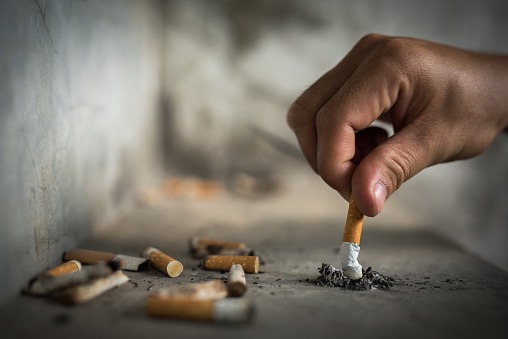The Vision for Alternative Development (VALD) has encouraged the awareness and commitment of organisations, governments and individuals to transformational changes in policies and choices towards a cleaner and greener environment.
The organisation in a statement to mark the 2022 World Environment Day themed, “Only One World” said tobacco production accounts for 5% of global deforestation.
“Tobacco cultivation requires substantial inputs of labor (often by children), land, fertilizer, and water while producing enormous toxicity to land and water ecosystems. Both land clearance for cultivation and the burning of wood and charcoal for curing tobacco are major contributors to air pollution and water scarcity,” it said.
It explained that discarded cigarette butts represent the first source of plastic pollution in the world, as they are the most littered item with more than five trillion butts dumped unconsciously and inexcusably into the global environment each year.
VALD indicated that nearly all cigarettes contain filters made of cellulose acetate, a plastic product, making discarded butts anon-biodegradable toxic waste.
“In addition to being a public nuisance, laboratory studies on cigarette butts have found that the substances leaching out of them are acutely toxic to both fresh and saltwater fish, and aquatic micro-organisms,” it said.
Given these substantial life cycle-related environmental impacts, among others, the statement said the tobacco industry’s long-standing refusal to prevent, reduce and mitigate their toxic, polluting activities necessitates the adoption of strong policies, laws and regulations that either mandate required responses or place responsibility directly on industry’s shoulders, making them pay for the harm they cause.
“VALD calls on governments and policymakers to step up legislation, including implementing and strengthening existing schemes, such as the Framework Convention for Tobacco Control; Among the important binding obligations under the FCTC, Article 9 calls for regulation of the contents of tobacco products, Article 18 obligates Parties to protect the environment and people’s health in relation to agriculture and manufacturing of tobacco products, and Article 19 compels Parties to consider taking legislative action to address the issue of industry liability for the adverse consequences of tobacco use,” it stressed.
The organisations said research has found that growing tobacco contributes to deforestation, especially in the developing world which promotes soil degradation and “failing yields” and becomes a peril to food security.
It further indicated that the tobacco industry contributes to climate change and reduces climate resilience, wasting resources and damaging ecosystems necessary for human society, making it a threat to our livelihoodand very existence.
“Tobacco products damage the environment at every stage of their lifecycle, not to mention the health impact on users and even secondhand smokers. Tobacco use increases the risk of diseases such as cancer, ischemic heart disease, chronic obstructive pulmonary disease, stroke, etc. and accounts for over 100 million deaths globally which is estimated to rise to 1 billion if current smoking patterns continue,” it added.
By Jamila Akweley Okertchiri


